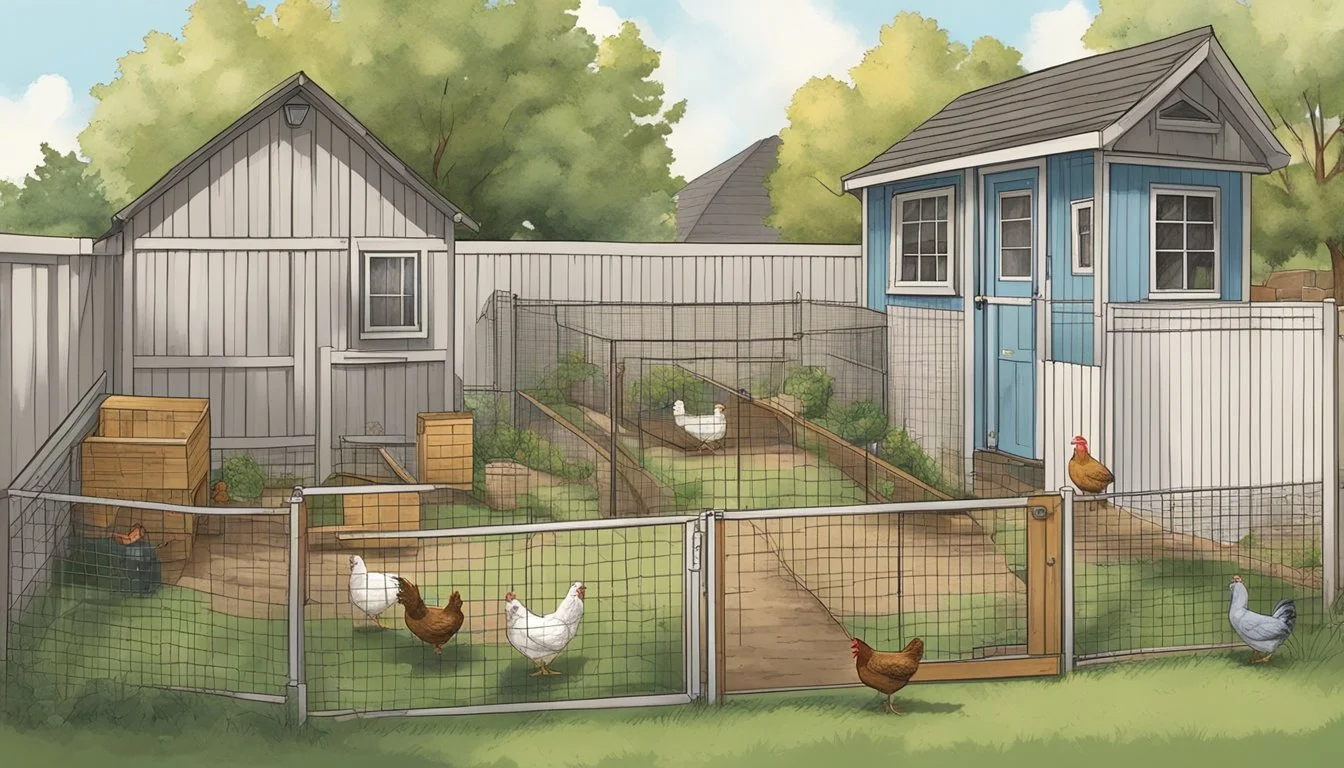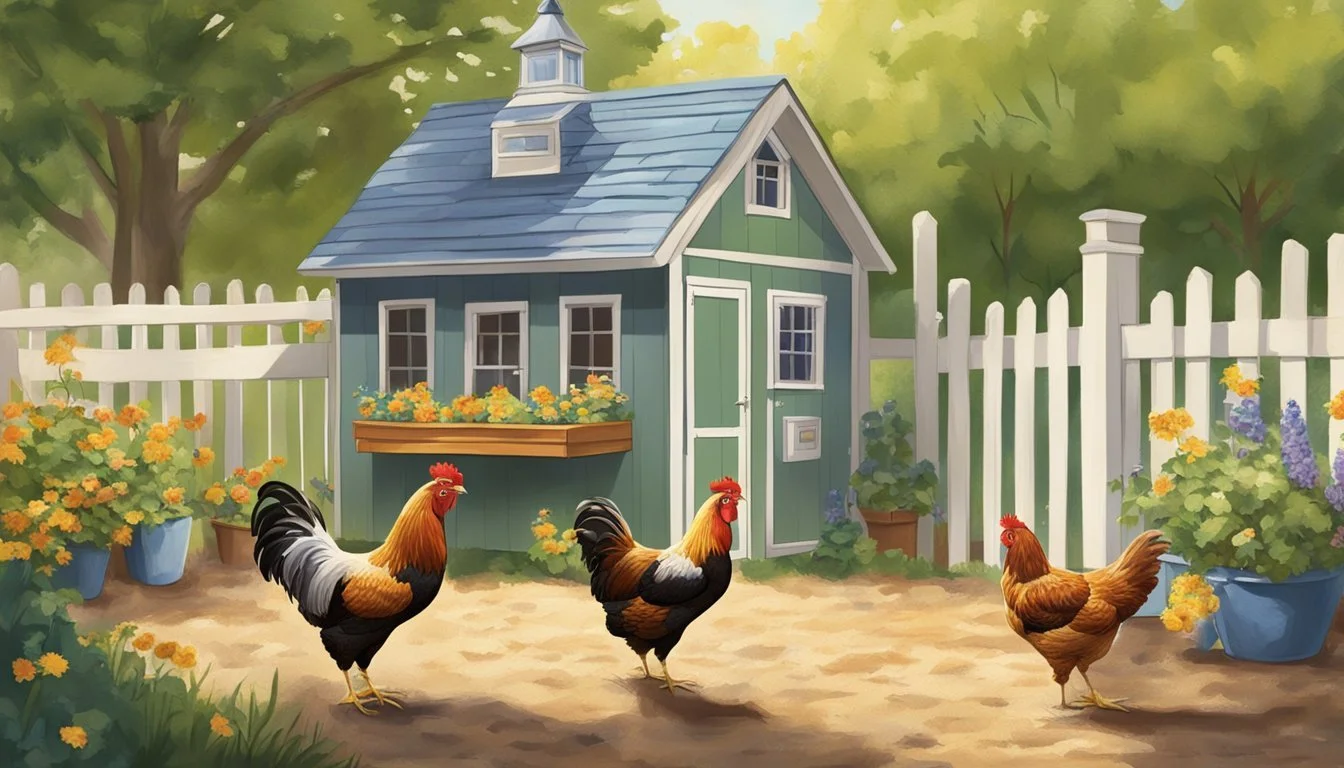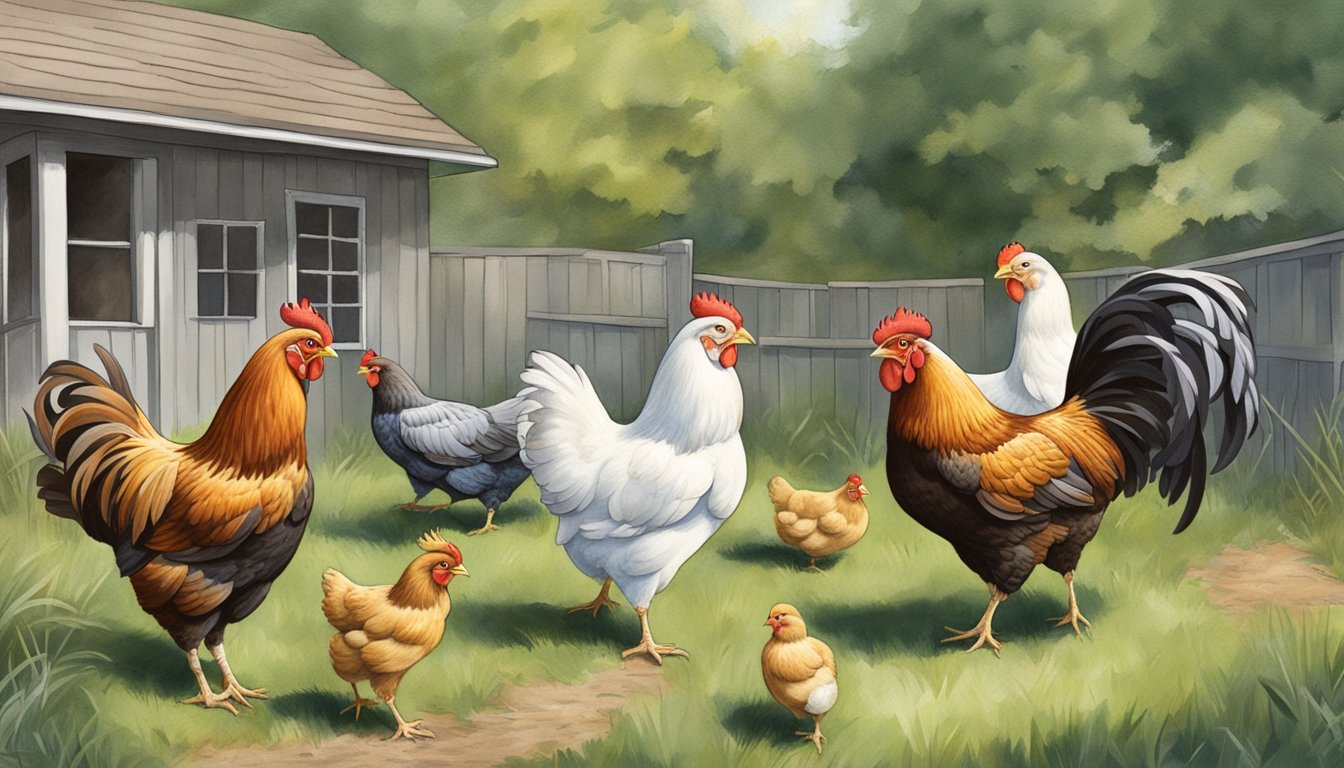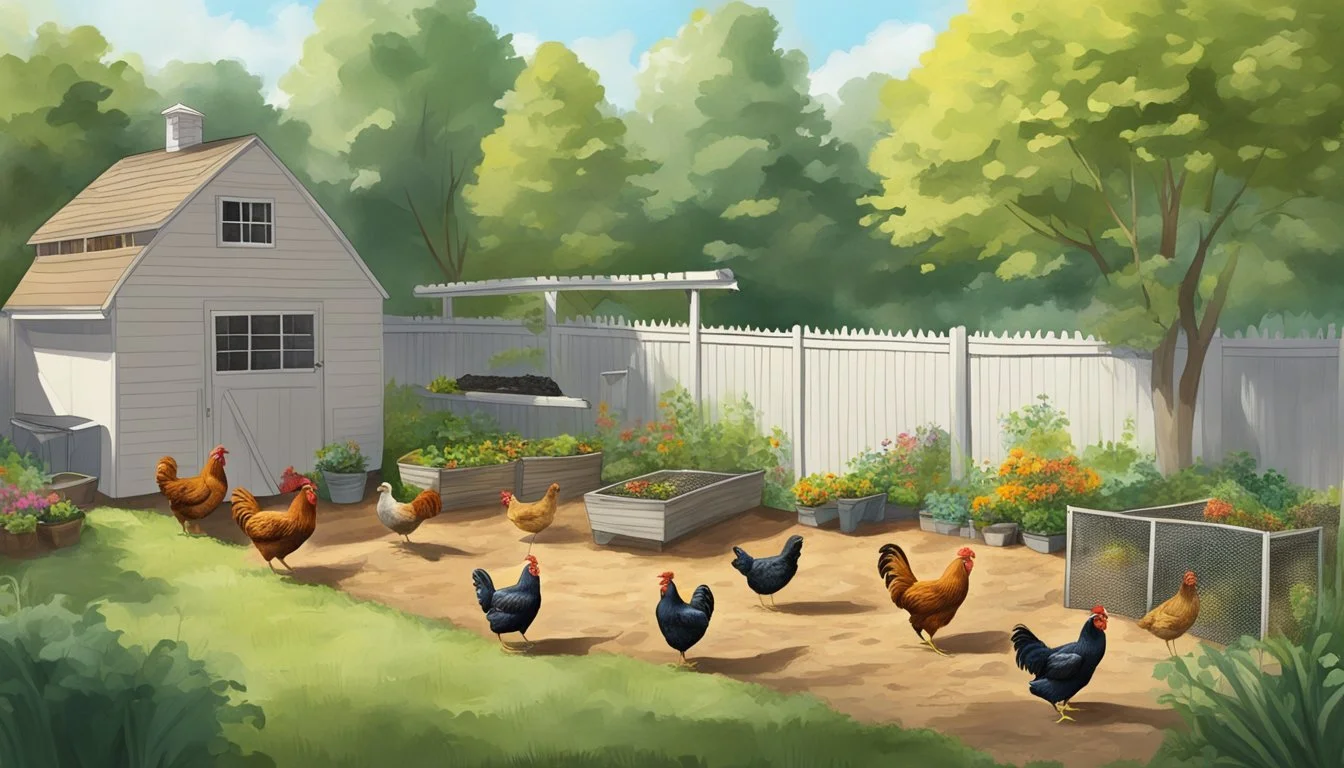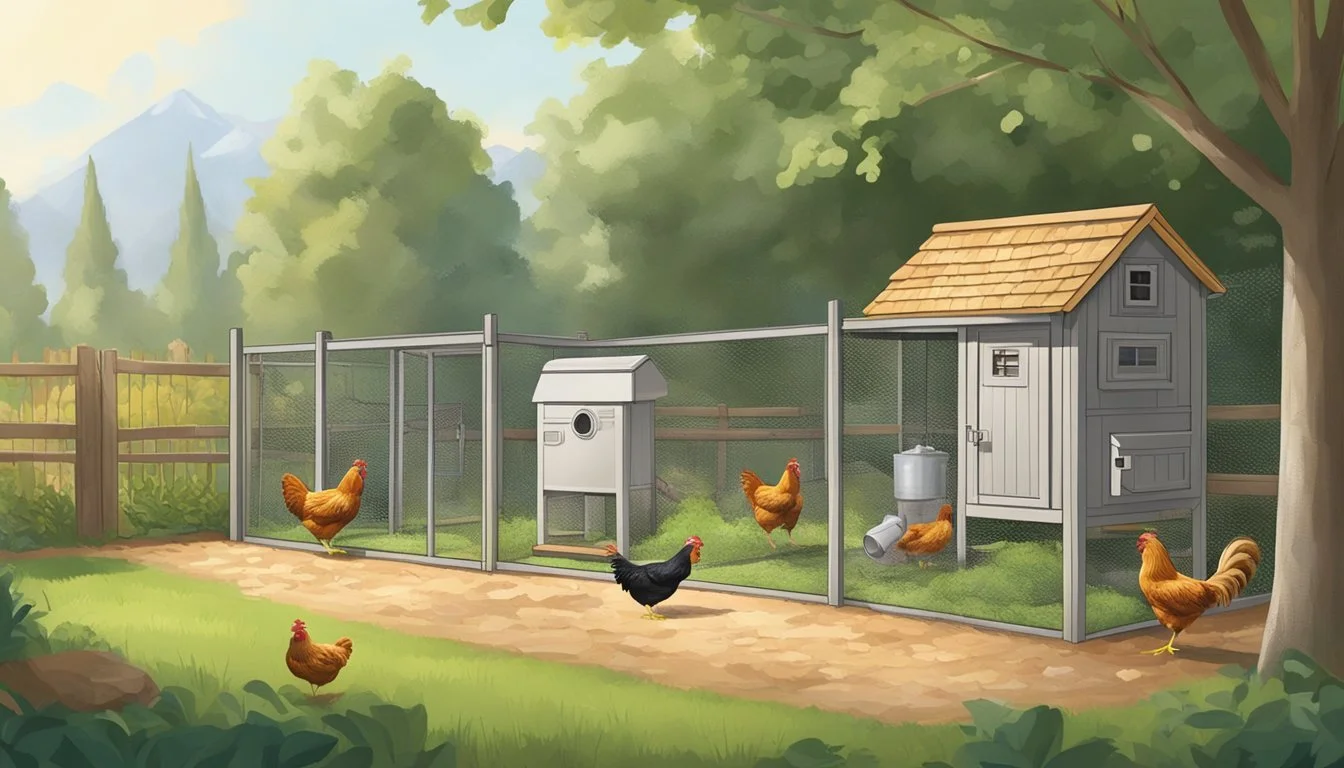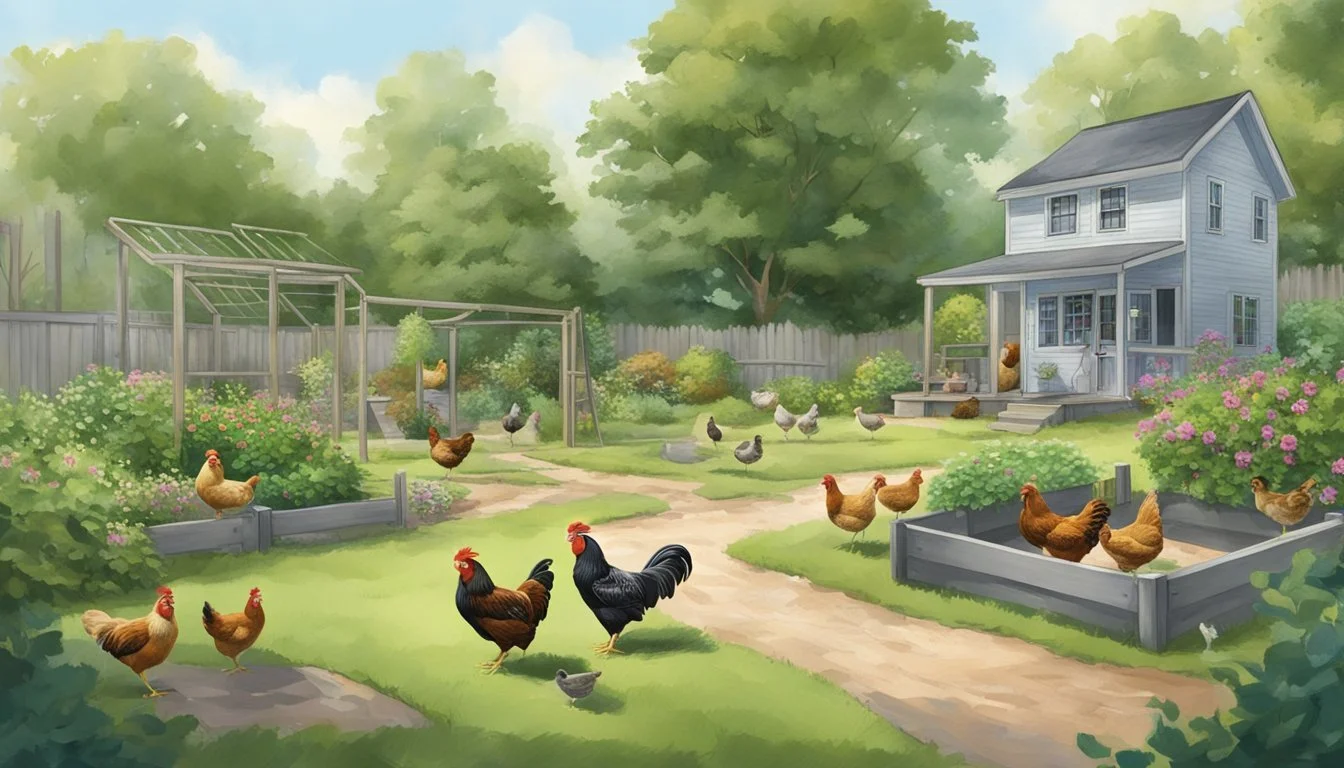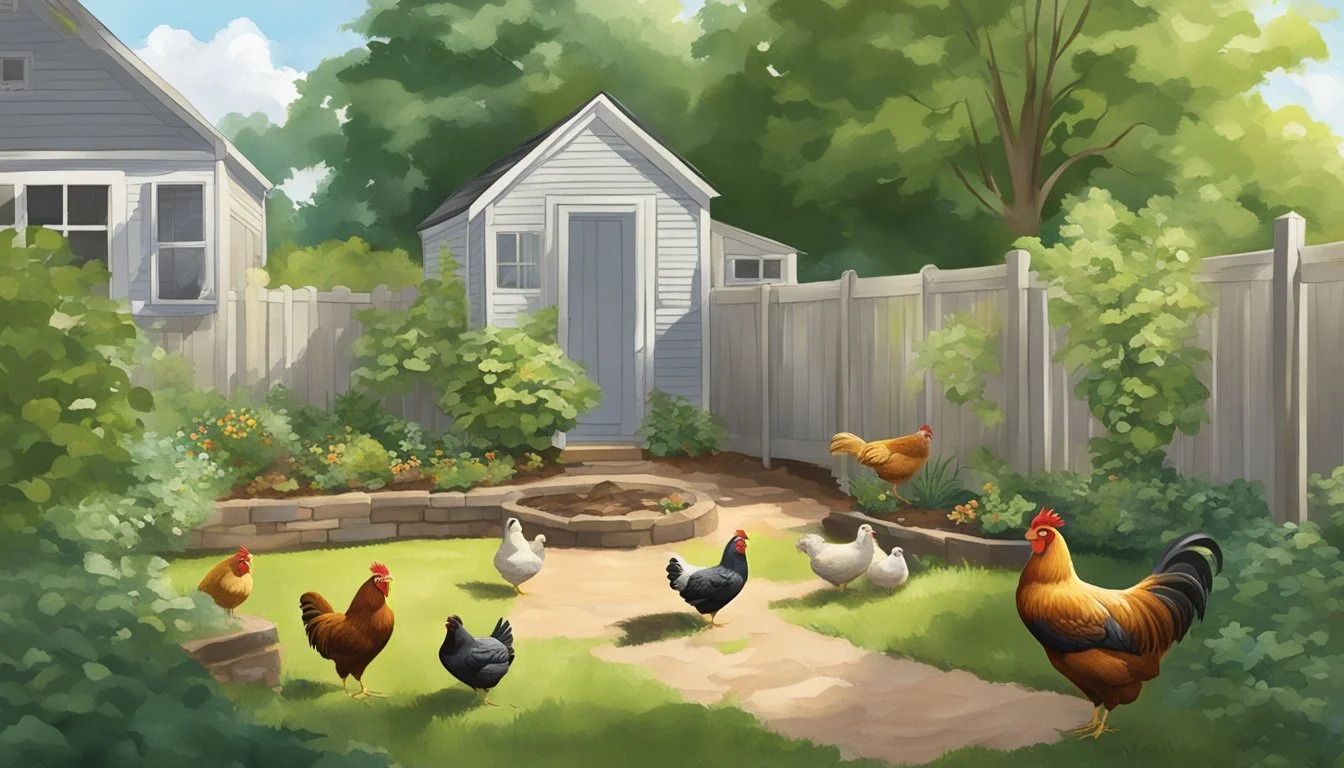Keeping Backyard Chickens in Greensboro, NC
Essential Guidelines for Urban Poultry Farming
Keeping backyard chickens has become a popular trend in Greensboro, North Carolina, offering residents the joys of fresh eggs and the satisfaction of raising their own poultry. Before starting a backyard flock, it's crucial for Greensboro residents to understand the specific regulations set forth by the city to ensure the well-being of the birds as well as compliance with local laws. In Greensboro, coops and shelters for poultry must be positioned behind the rear wall of the principal building on a property, which aligns with urban farming practices and maintains neighborhood aesthetics.
When considering backyard chickens in Greensboro, it's also important to recognize the permitted zones and lot size requirements. The city allows residents to keep chickens in designated residential zones, provided their lot sizes meet the minimum requirements—lots under 7,000 square feet are restricted from poultry keeping. As for the chickens themselves, a variety of breeds are suitable for backyard flocks in North Carolina's climate. Prospective owners should select breeds based on their hardiness, temperament, and egg-laying capabilities to ensure a rewarding and successful experience with urban poultry farming.
Legal Considerations
In Greensboro, NC, residents interested in keeping backyard chickens must comply with specific legal frameworks. These include local ordinances, zoning, and property regulations, as well as animal control laws.
Understanding Local Ordinances
The City of Greensboro enforces ordinances that specify the permissible conditions for raising poultry. For instance, shelters and coops for poultry must be situated behind the rear wall of the principal building. It is essential for residents to consult with the City of Greensboro directly for up-to-date information and guidance on local poultry regulations.
Key Ordinance Requirements Details Coop Location Behind the rear wall of the home Contact Information City of Greensboro: (336)373-2489
Zoning and Property Regulations
Zoning laws determine whether residents can keep chickens on their property. The size of the lot influences the number of chickens allowed:
Lots <7,000 square feet - No poultry allowed
7,000 to 12,000 square feet - Up to 4 chickens
>12,000 square feet - Up to 20 chickens
It is recommended that residents verify these requirements with the local zoning office as they may vary and change over time.
Animal Control Laws
In addition to zoning and local ordinances, there are overarching animal control laws that must be followed. These laws may govern the care and treatment of chickens, noise levels, sanitation, and other animal welfare considerations within North Carolina. The NC State Extension can offer additional guidance on best practices for poultry care in urban settings. They underline the importance of understanding and abiding by these laws to ensure responsible and legal chicken keeping in Greensboro.
Setting Up Your Coop
When setting up a chicken coop in Greensboro, NC, it's crucial to consider the location, adhere to specific design and size requirements, and implement measures to protect against predators to ensure the well-being and security of the chickens.
Choosing the Right Location
In Greensboro, NC, one should place their chicken coop behind the rear wall of the principal building on the property. The coop must also respect city regulations, including:
Setback Requirements:
Coops and shelters must be at least 25 feet from any property line.
They must be 50 feet away from any principal building on an abutting lot for lots sized between 7,000 and 12,000 square feet.
Choosing a location within these guidelines is essential for legal compliance and promoting a harmonious neighborhood environment.
Coop Design and Size Requirements
The design of a chicken coop should cater to the number of chickens and the available backyard space. Greensboro's guidelines require that coops:
Be constructed as accessory structures to single-family detached dwellings.
Comply with Chapter 5 of the city's code.
It is important that coops provide sufficient space to allow chickens to roost comfortably and move freely. A general recommendation is to provide at least 3-4 square feet per chicken inside the coop and 8-10 square feet per chicken in the outdoor run.
Protecting Against Predators
To safeguard backyard chickens from predators in Greensboro, efficient measures include:
Fencing:
A sturdy fenced area surrounding the coop and run to deter digging or climbing predators.
The use of hardware cloth is more secure than chicken wire for enclosing coops and runs.
Shelter Design:
The coop should be designed to prevent entry from predators such as raccoons, birds of prey, and rodents.
Locks and reinforced entry points can add additional security.
By designing the coop to be predator-proof and ensuring it is well-maintained, owners can significantly reduce the risk of predator attacks on their poultry.
Chicken Care and Management
Managing a backyard chicken flock in Greensboro, NC, requires attention to feeding, water and sanitation, and the everyday handling of your birds. Adherence to these care practices ensures the health and productivity of your chickens.
Feeding Your Flock
To maintain a healthy flock, owners must provide a balanced diet. Chickens require a mixture of proteins, carbohydrates, vitamins, and minerals. A typical feed for laying hens consists of:
Layer pellets: High in calcium to promote strong eggshells.
Grains: Such as corn or wheat for energy.
Greens: Leafy vegetables contribute to a balanced diet.
Chickens also benefit from occasional treats like fruits, but these should not exceed 10% of their diet.
Water, Hygiene, and Disease Prevention
Clean, fresh water must be available at all times for chickens. Water containers should be cleaned regularly to prevent the spread of disease. Basic hygiene practices include:
Regular coop cleaning: To reduce the risk of disease,
Pest control: To keep mites and lice at bay,
Vaccinations: Timely vaccinations are recommended to prevent common poultry diseases.
Implement biosecurity measures to prevent disease spread between flocks and ensure visitors don't introduce contaminants to the area.
Proper Handling and Care
Chickens must be handled with care to reduce stress and prevent injury. Proper care includes:
Regular inspections: For signs of illness or injury,
Safe housing: Protection from predators and extreme weather,
Space to roam: Adequate space for exercise and natural behaviors.
By providing these basic needs, backyard poultry enthusiasts can help ensure their chickens live healthy, productive lives.
Breeds and Egg Production
When embarking on the journey of keeping backyard chickens in Greensboro, NC, one must consider both the selection of appropriate chicken breeds and the management of egg production. The breeds chosen will impact not only the quantity and quality of fresh eggs but also the overall well-being of your backyard flock.
Selecting Chicken Breeds
Selecting the right chicken breeds is crucial for a successful backyard flock. Heritage breeds like Rhode Island Reds and Barred Rocks are popular choices, valued for their robust health and reliable egg-laying. Leghorns are prolific egg producers, known for their high-quality white eggs. For a more diverse egg basket, consider breeds like Ameraucanas, which lay blue and green eggs. Greensboro residents looking to keep chickens should focus on breeds that adapt well to the local climate and environment.
Managing Laying Hens
Effective management of laying hens includes providing a comfortable nesting area, ensuring a balanced diet, and maintaining a consistent light schedule to promote regular egg production. Mature hens typically lay best with about 14-16 hours of light per day. It's important to monitor and adjust these conditions to keep hens laying safely and consistently. Use organic litter, such as manure mixed with bedding, to enhance the garden while supplying nutrients back into the flock's diet.
Bringing Up Chicks
Raising day-old chicks into pullets and eventually into mature laying hens is a rewarding process. Providing a secure, warm brooding area, proper feed for growth, and vaccinations are important steps. Pullets typically start laying eggs at about 18-22 weeks of age. During this time, careful observation for signs of illness or stress will ensure a smooth transition into their role as productive layers in the backyard flock.
Integrating Chickens with Gardens
In Greensboro, NC, keeping garden chickens can provide substantial benefits to gardens, as long as the interactions between plants and chickens are carefully managed to ensure the health and safety of both.
Benefits to Gardens
Chickens contribute to the garden ecosystem in several valuable ways. They provide organic fertilizer through their manure, which is a nutrient-rich addition to compost. This natural fertilizer helps to promote soil fertility and, consequently, plant growth. Additionally, chickens play a role in pest control. They forage for bugs and other pests that could otherwise harm garden plants. Notably, during their laying year, chickens are particularly effective at pest management, as their need for more protein leads them to seek out these insects.
Organic Fertilizer Production: Chicken manure when mixed with bedding becomes an excellent source of organic fertilizer for gardens.
Pest Control: Chickens feed on common garden pests, reducing the need for chemical insecticides.
Soil Aeration: Their scratching behavior helps aerate the soil, improving its structure.
Safe Plant and Chicken Interactions
To maintain a thriving garden alongside chickens, certain precautions are necessary. It's crucial to ensure that both the garden and the chickens do not negatively impact each other. Fertile eggs should be collected regularly to prevent the hatching of unplanned chicks, which could lead to overcrowding and increased competition for fresh food. Some plants can be toxic to chickens, so it’s important to do research and keep harmful plants out of reach. Conversely, protecting delicate plants from the chickens' scratching is equally important. Fencing around the garden area or specific plants may be employed to safeguard them.
Selecting Compatible Plants: Grow plants that are not toxic to chickens and can tolerate their presence.
Physical Barriers: Use fences or nets to protect vulnerable plants from chickens.
Cautious Introduction: Slowly introduce chickens to the garden space to monitor interactions.
Community and Environmental Impact
Backyard chickens in Greensboro, NC can have a notable impact on both the community and the environment. Key aspects of this include neighborly relations influenced by noise considerations and the management of chicken waste for sustainability purposes.
Noise and Neighbor Considerations
Backyard chickens generate some amount of noise, primarily from hens clucking and, if present, roosters crowing. In Greensboro, homeowners with chickens are responsible for minimizing disturbances. Noise levels must be kept to a reasonable volume to maintain the peace within the community. Considerate planning of coop placement, such as positioning coops away from neighboring bedroom windows, can significantly reduce potential conflicts.
Sustainability and Waste Management
Manure Management: The proper treatment of chicken manure is essential for minimizing environmental impact. Chicken owners can convert manure into organic fertilizer for their gardens, enriching the soil with nitrogen, phosphorus, and potassium. However, it's critical to compost the manure correctly to prevent runoff and protect local waterways.
Manure Benefits Manure Management Soil enrichment Regular collection Organic material Proper composting Nutrient recycling Odor control
Waste Reduction: Chickens contribute to sustainability efforts by consuming kitchen scraps and reducing household food waste. This practice not only provides a diverse diet for the chickens but also aligns with Greensboro's waste management objectives.
Support Services: Local veterinarians play a role in ensuring chicken health, further safeguarding the community's public health standards and environmental integrity. Regular health check-ups can prevent the spread of diseases that could potentially impact the community and environment.
Troubleshooting Common Issues
In maintaining a backyard flock in Greensboro, NC, residents may face various challenges. This section provides guidance on addressing key issues with predators, unexpected roosters, and health concerns to ensure the wellbeing of the chickens.
Dealing with Predators
Predators are a significant threat to backyard chickens. Common predators in Greensboro include raccoons, foxes, and hawks. To protect the flock, owners should:
Secure Coops: Ensure that chicken coops are fortified with sturdy hardware cloth, not chicken wire, which can be easily breached by raccoons.
Lock Up at Night: Chickens should be safely locked in their coops from dusk till dawn to prevent nocturnal predator attacks.
Remove Attractants: Store feed in airtight containers and keep the coop area clean to avoid attracting predators with the scent of food.
Managing Unwanted Roosters
While modern Greensboro ordinances may allow backyard hens, roosters are typically prohibited due to their noise. If one ends up with an unexpected rooster, they should:
Rehome Responsibly: Contact local farms, agricultural schools, or poultry rescues to find a new home for the rooster.
Abide by Local Laws: Reach out to Greensboro Animal Control at (336)373-2489 for assistance and to ensure compliance with city regulations.
Chicken Health Concerns
Disease prevention is crucial for backyard flocks. Owners should take steps to:
Monitor Behavior: Be vigilant for signs of illness such as lethargy, reduced egg production, or abnormal droppings.
Practice Good Hygiene: Regular cleaning of the coop and proper disposal of waste helps to prevent the spread of disease.
Seek Professional Advice: Establish a relationship with a local veterinarian knowledgeable in poultry health for proper vaccinations and treatment when needed.
By tackling these common issues proactively, backyard chicken enthusiasts in Greensboro can enjoy the rewards of poultry keeping while minimizing risks to their flock's health and safety.
Local Resources and Support
For residents of Greensboro, North Carolina, nurturing backyard chickens is supported by an array of local resources. These include educational opportunities, networks with fellow enthusiasts, and healthcare for poultry.
NC State Extension Services
The NC State Extension provides a robust informational platform for citizens pertaining to poultry care and management. Workshops and publications are accessible through their Gardening Portal, which can be incredibly useful for residents in Greensboro. They offer comprehensive guidelines on how to successfully keep and look after backyard chickens.
Local Chicken Keeping Communities
Greensboro residents can engage with local chicken keeping communities to share experiences, tips, and support. These groups connect poultry enthusiasts within Greensboro as well as the wider regions of Raleigh and Durham, fostering a community of knowledgeable chicken owners.
Finding Veterinarians for Poultry
Locating a veterinarian who specializes in poultry is crucial to ensure the health and wellbeing of backyard chickens. In Greensboro and surrounding areas, several veterinary practices cater to avian and poultry care, providing essential health services ranging from regular check-ups to treatment of illnesses.
Conclusion
Maintaining a small flock of backyard chickens in Greensboro, NC, can be a sustainable choice for residents willing to adhere to city regulations. Enthusiasts can select breeds, such as Plymouth Rocks, New Hampshires, Sussex, or Wyandottes, which are well-suited for small-scale, residential settings.
A key consideration for potential owners is understanding local ordinances which dictate the placement of coops and the number of birds permitted. For lots ranging between 7,000 to 12,000 square feet, a maximum of 4 chickens may be kept. Prospective owners should ensure their property falls in permissible districts and meets the requisite lot size.
Those raising chickens benefit from effective pest management, as chickens consume common pests and can reduce the need for chemical interventions. Furthermore, chickens provide an excellent way to recycle kitchen waste by feeding them scraps that are safe for poultry to consume. In turn, chickens can provide homeowners with fresh eggs, contributing to a self-sufficient lifestyle.
Engaging in responsible chicken ownership necessitates a commitment to their care, including safeguarding them from illnesses and providing a comfortable habitat. Through informed management and alignment with local guidelines, raising chickens in Greensboro fosters an environment of sustainability and connection to the food source.


